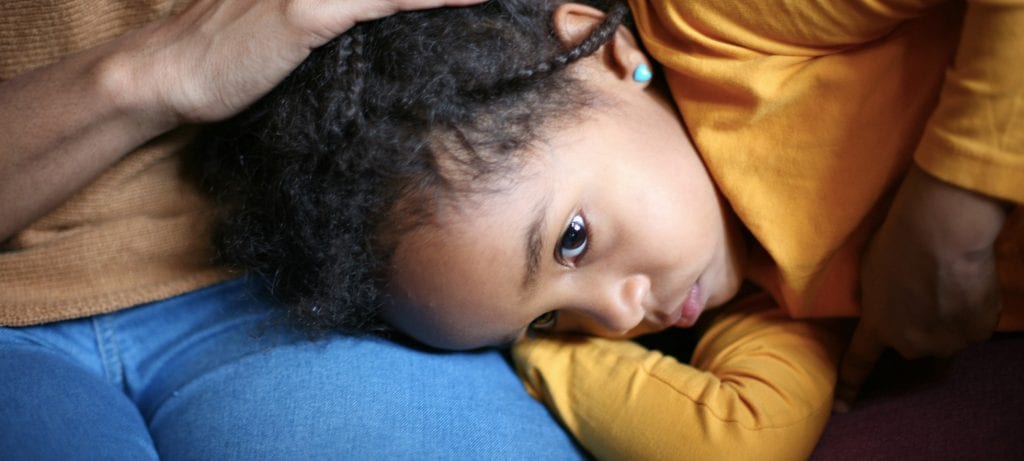
If your life is in danger, please call 9-1-1 or your local emergency number.
Computer use can be monitored and is impossible to completely clear. If you’re afraid your computer usage is being monitored, call one of the hotlines below.
• NATIONAL DOMESTIC VIOLENCE HOTLINE operates 24-7 as a confidential hotline and provides lifesaving tools and support to help victims find safety.
• CORA is located in San Mateo County solely dedicated to those affected by intimate partner abuse. They are available for the 24-hour hotline at (800) 300-1080. https://www.corasupport.org/
• FAMILY LAW VIOLENCE CENTER is located in Alameda county helps diverse communities heal from domestic violence and sexual assault. They are available at a 24-hour hotline at (800) 947-8301. http://fvlc.org/
• STAND! For Families Free of Violence is located to Contra Costa County and is committed to promoting safe and strong families. It is a cross-sector organization working to help solve domestic violence, sexual assault, and child abuse. They are available on a 24-hour toll-free crisis line at (888)-215-5555. http://www.standffov.org/
• WOMAN, INC is located in San Francisco and services survivors of domestic violence provides 24-hour a day with support lines for counseling, safety planning, and referrals, and can be reached at (877) 384-3578. http://www.womaninc.org/
• ASIAN WOMEN’S SHELTER is located in San Francisco and is committed to addressing the needs of women, children, and transgender survivors of domestic violence and human trafficking, especially those who are immigrants and refugees. They have a 24-hour crisis hotline which can be reached at (877) 751-0880. https://www.sfaws.org/
• ROSALIE HOUSE is an emergency shelter in San Francisco which offers those feeling from violence or other forms of domestic abuse a safe, temporary haven for up to 12 weeks. They have a support line that can be reached at (415) 255-0165. https://svdp-sf.org/rosalie-house/
• LAS CASA DE LAS MADRES is located in San Francisco and is responds to calls for help from domestic violence victims of all ages, 24 hours a day. They have a support line with they can be reached at (877) 503-1850 (adults), (877) 923-0700 (teens) or at (415) 200-3575 (for text messages). https://www.lacasa.org/
We are currently living in an unprecedented time. When Governor Newsom ordered a Shelter-in-Place for all of California, many people scrambled to find a new routine and found themselves stuck at home as a united attempt to flatten the curve.
Ironically, while the Shelter-in-Place was meant to protect lives and the health and safety of all Californians, it has also trapped many people in the most dangerous place they know: their own home.
Domestic violence is one of the most prevalent crimes in the United States. Statistics have shown that 32.9% of California women and 27.3% of California men will experience incidents of domestic violence. Domestic violence is also one of those crimes that can happen to anyone, regardless of race, age, sexual orientation, religion, gender, socioeconomic background, and education.
When Shelter in Place is not in effect, a survivor can sometimes find opportunities to reach out for help when the perpetrator has left the home – typically to go to work. COVID-19 and Shelter-in-Place orders have limited (or completely eliminated) these opportunities as most survivors find their perpetrators working from home or unemployed.
For many survivors, staying at home is not the safest option even in these trying times. In fact, external stressors may further compromise the safety of many survivors. Many perpetrators may also use this pandemic as a way to exert power and control over a survivor and further isolate them from their friends and families.
Family Court takes domestic violence matters seriously and has many resources in place to prevent these incidents and ensure the safety of survivors. While courts remain closed to abide by Shelter-in-Place orders, most courts are still accepting filings for a domestic violence restraining order requests and emergency filings. Children can be included in these orders for protection.
Domestic violence is defined as those who are married or previously married, those who live or lived together, those who are dating or used to date, and those who share a child together. California Family Code § 6211.
Abuse is defined as (1) intentionally or recklessly cause or attempt to cause bodily injury; (2) sexual assault; and (3) placing a person in reasonable apprehension of imminent serious bodily injury to that person or to another. California Family Code § 6203. It is not limited to the actual infliction of physical injury or assault but rather can include verbal abuse, harassment, or behavior that causes grave emotional distress.
Law Enforcement has the authority to request an Emergency Protective Order (EPO) if they have reasonable grounds to believe that the person to be protected is in immediate and present danger of domestic violence pursuant to Family Code § 6275. In order to obtain the EPO, law enforcement must request to a judge, in writing, issuance of the EPO. Judges are available 24 hours a day to issue these orders. Judges must find that there is reason to believe an individual is in immediate and present danger of domestic violence and that an emergency protective order is necessary to prevent the occurrence or reoccurrence of such violence.
An EPO can provide many of the same protections as a regular domestic violence restraining order, such as removing the perpetrator from the home, ordering no contact with the survivor, and temporary custody of children. However, an EPO is temporary and can only last up to seven calendar days. The purpose is to provide a survivor with enough time to file a Domestic Violence Restraining Order (DVRO) with the Court and obtain a court-issued temporary restraining order.
A Temporary Restraining Order (TRO) is a court-issued order which lasts until the court holds a hearing to determine whether or not to grant a permanent restraining order. These TROs may be issued by the judge ex parte – without informing the other party or holding a hearing. A court hearing will usually be held within three weeks from the date of filing.
When a Temporary Restraining Order is requested ex parte, an order (granting or denying the request) must be issued or denied on the same day the application is filed, unless it is filed too late for a review, which then will be issued or denied the next day. California Family Code § 6326. It is a judge’s discretion to decide whether the TRO should be issued or can wait until the court hearing.
A Temporary Restraining Order can enjoin a party from contacting a protected party or coming within a specified distance of the person, their home, and/or their work. California Family Code § 6320.
Permanent Domestic Violence Restraining Orders (DVRO) is issued after a court hearing. At the hearing, a judge can make personal conduct orders, stay-away orders, residence exclusion orders, and any other orders that help prevent the immediate danger or irreparable harm to a protected party or their children. The court must consider whether failure to issue these orders will jeopardize the safety of the party needing protection.
A permanent order is effective when made and law enforcement must enforce it immediately upon receipt. California Family Code § 6224.
A DVRO can last up to five years per a judge’s discretion. California Family Code § 6345. At the end of the order, you can ask for a new restraining order if you feel the need for protection still prevails within three months before the expiration of the orders. California Family Code § 6345.
A criminal protective order is issued in criminal court. A criminal case is commenced by the District Attorney filing charges against the abuser.
While the fear of COVID-19 has prevailed all around the world, this pandemic will only escalate the amount of violence seen in homes, and further isolate many from their social networks, support systems, and financial resources. Your safety is Modern Family Law’s top priority. Here are a few tips to help keep you safe:
• CALL 911: If you feel it is too dangerous to stay in your home, call 911 and/or go to a shelter near you. Request an emergency protective order.
• PUT TOGETHER A SAFETY PLAN: Many resources recommend putting together a safety plan (https://www.thehotline.org/help/path-to-safety/) and finding a safe place in your home to go to if things begin to escalate.
• REACH OUT TO LOCAL RESOURCES: Call the resources above when you feel it is most safe to do so. If your perpetrator goes for a walk or goes out to the grocery store, use that opportunity to call a hotline or use the chat feature that many of the websites offer. Many domestic violence shelters have been working tirelessly amidst COVID-19 to help bring survivors to a safe place.
• TECHNOLOGY IS YOUR FRIEND: Reach out to your most trusted friends and family. There are several texting apps you can use, such as WhatsApp, Snapchat, or Google Hangouts, so that a text does not show up on your phone bill. You can use several of those apps to make phone calls as well. Facetime and Zoom are great apps to have face-to-face time with the ones you trust.
• ONLINE THERAPISTS AND COUNSELORS: Many therapists and counselors are offering remote services via video chat. If you have a therapist you already trust, reach out to them and see if they can offer you a remote counseling session.
• LEARN “HELP” IN SIGN LANGUAGE: Learn sign language for “help” (close your left hand into an “A” (a closed fist thumbs up) and place it on top of your right palm). If you are unable to verbalize your need for help, use sign language via video chat to indicate to your loved ones your need for help so they can reach out to resources for you.
• FILE FOR A DOMESTIC VIOLENCE RESTRAINING ORDER. File a request for a domestic violence restraining order with the court. A temporary restraining order may be issued that same filing day and will be immediately enforceable.
Now, more than ever, we urge friends and families to check in with each other. Domestic violence happens undercover and most survivors, for several reasons, are afraid to tell their friends and families what is happening under their roof. During this time of quarantine, it is important to check in with those who may seem more isolated than usual. As a reminder, domestic abuse can happen to anyone. This article is a great resource to find “warning signs” of domestic abuse.
Stepping outside our home, for most of us right now, means risking our health and safety. It’s scary. Unfortunately, this same fear is what many survivors experience being trapped inside of their homes. Be hypervigilant. And if you are a survivor of domestic violence, please reach out. Modern Family Law can help you file a Request for a Domestic Violence Restraining Order to help protect you and your children.
If you or your loved one are seeking legal assistance for a domestic violence restraining order, Modern Family Law is here for you. Please call (510) 633–8286 for a free initial consultation. We are available to help you file a domestic violence restraining order with the Court and will work tirelessly to help you through this difficult process. Your safety is our priority.

Domestic Violence
How Does Domestic Violence Impact A Colorado…Domestic violence is a serious issue that can have a significant impact on divorce proceedings in Colorado. When one spouse has been a victim…

Protection Orders
Domestic Violence and Protective Orders in TexasIf you are seeking a protective order due to family violence, please call us. If you are the accused in a protective order, we…

Enforcement
Protection Order TerminologyFamily law, like many areas of law, can be confusing and intimidating. Unless you’ve had training in legal concepts, some of the terminologies that…